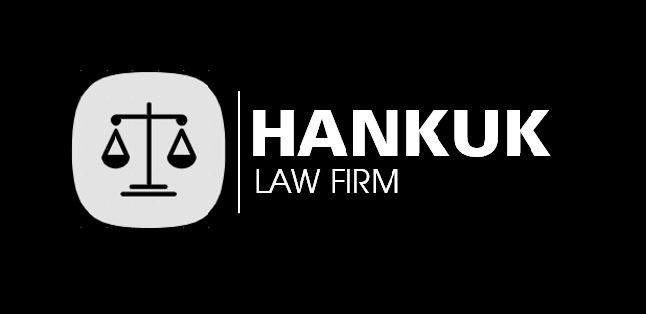THE ACCOUNTING LAW 2025: LEGAL IMPACTS AND COMPLIANCE CHALLENGES FOR ENTERPRISES
Contents
- I. Legal Basis
- II. Context Leading to the Amendment of the 2015 Accounting Law (Effective 2025)
- III. Accounting Principles and Core New Points of the Accounting Law 2025
- IV. System of Guiding Documents Implementing the Accounting Law 2025
- V. Legal Impacts and Practical Application of the New Provisions of the Accounting Law 2025
- VI. Conclusion
- VII. About Us, Hankuk Law Firm
I. Legal Basis
The core legal instruments governing accounting activities and the latest changes include:
- The Accounting Law 2015 (Law No. 88/2015/QH13).
- The Law amending and supplementing a number of articles of the Accounting Law and relevant laws in 2024 (Law No. 56/2024/QH15), effective from January 1, 2025.
- Decree 70/2025/ND-CP, which regulates electronic invoices and vouchers.
- Decree 102/2021/ND-CP, which stipulates penalties for administrative violations in the fields of tax, invoices, accounting, and independent auditing.
- Decree 05/2019/ND-CP, which governs internal auditing.
- Circulars 71/2024/TT-BTC, 24/2024/TT-BTC, and 46/2025/TT-BTC, which provide specific guidance on accounting regimes.
II. Context Leading to the Amendment of the 2015 Accounting Law (Effective 2025)
The 2015 Accounting Law, adopted by the XIII National Assembly, took effect on January 1, 2017, replacing the 2003 Accounting Law. This law is a critical legal document that comprehensively regulates accounting work, covering the organization of the accounting apparatus, vouchers, ledgers, financial statements, accounting services, and state management of accounting.
However, after nearly 10 years of implementation, many regulations revealed limitations, failing to keep pace with international standards and new requirements for financial transparency, digital transformation, and global economic integration. In response to this reality, the National Assembly enacted Law No. 56/2024/QH15, effective from January 1, 2025, amending several articles of the 2015 Accounting Law and related laws. Furthermore, the Government and the Ministry of Finance simultaneously issued a series of guiding decrees and circulars to operationalize and synchronously deploy these new regulations.

III. Accounting Principles and Core New Points of the Accounting Law 2025
1. Basic Accounting Principles
Article 6 of the 2015 Accounting Law stipulates the system of principles that all accounting units must adhere to:
- Recognizing assets and liabilities initially at their original cost, which may then be adjusted according to fair value if there is reliable evidence.
- Reflecting objectively, fully, truthfully, and within the correct accounting period.
- Preparing and presenting financial statements timely, accurately, and publicly as prescribed by law.
- Applying accounting methods consistently throughout the accounting period; any changes must be clearly explained.
- Ensuring prudence in valuation, without misstating financial results.
- Units using the state budget must also comply with the system of state budget classifications, in addition to the above principles.
2. New Points Effective from January 1, 2025
The 2024 amending Law introduces supplementary and adjusted regulations aimed at enhancing transparency and better alignment with international practices. Specifically, the key amendments include:
- Wider application of the fair value principle in recognizing assets and liabilities, moving beyond restricting its use to specific exceptional cases
- Enhanced disclosure of financial information: accounting units are now required to publicly disclose their financial statements transparently and promptly, thereby facilitating supervision by regulatory bodies, investors, and the general public.
- Adjustment of responsibilities for auditors and accounting service organizations: this links professional liability directly to the quality of reports and supplements the mechanism for handling violations.
- Simplification of administrative procedures through the amendment or abolition of certain guiding circulars, aimed at reducing the procedural burden on enterprises, consistent with the policy of decentralization.
IV. System of Guiding Documents Implementing the Accounting Law 2025
To ensure the implementation of the Accounting Law and the 2024 amending Law, several guiding sub-law documents have been issued:
- Decree 70/2025/ND-CP: Specifies regulations on electronic invoices and vouchers, aligning with the digital transformation trend.
- Decree 102/2021/ND-CP: Stipulates administrative penalties in the fields of tax, invoices, accounting, and independent auditing.
- Decree 05/2019/ND-CP: Governs internal auditing.
- Circular 71/2024/TT-BTC: Amends the accounting regime for cooperatives.
- Circular 24/2024/TT-BTC: Stipulates the accounting regime for administrative and non-business units.
- Circular 46/2025/TT-BTC: Abolishes or amends many inappropriate regulations, thereby streamlining the administrative apparatus.
V. Legal Impacts and Practical Application of the New Provisions of the Accounting Law 2025
1. For Accounting Units
- Accounting units are required to update their accounting systems, ledgers, and software to comply with the new principles.
- Financial statements must be disclosed more widely and accurately, increasing the unit’s accountability.
- Failure to promptly adjust practices according to the new regulations carries the risk of administrative penalties.
2. For Accounting and Auditing Services
- Practicing firms and individuals must adhere more strictly to professional practice conditions, certification requirements, and knowledge updates.
- The mechanism for monitoring and penalizing violations is tightened, raising the requirement for high-quality service delivery.
3. For State Management Agencies
- State management agencies must intensify their efforts in guidance, training, and dissemination of the law to accounting units.
- They must also enhance inspection, examination, and handling of violations to ensure financial transparency and discipline
VI. Conclusion
The Accounting Law 2015, together with the 2024 amending Law effective from 2025, represents a significant step forward in enhancing the transparency, public disclosure, and international integration of Vietnam’s accounting legal system.
These new regulations simultaneously create opportunities to improve the quality of financial governance, fostering trust among investors and society. However, they also present challenges regarding the compliance capacity of enterprises and accounting organizations. Therefore, effective implementation requires synchronous coordination among regulatory agencies, professional accounting organizations, enterprises, and practicing accountants.
VII. About Us, Hankuk Law Firm

■ Hankuk Law Firm – Introduction
The goal of the legal services provided by HANKUK LAW FIRM is to support businesses, investors, and people. Our organization employs skilled Korean lawyers, partners, and professionals to provide legal services to businesses related to corporations and litigation.
To support the startup process, our lawyers and staff provide a wide range of services, including business law consulting, tax and immigration law consulting, real estate services, business consulting, marketing and communications, human resources, product distribution, franchise options, etc. We provide expert advice on every aspect of your business needs.
To protect the legitimate rights and interests of our clients and achieve the best results, we provide legal advice and participate in civil lawsuits related to business, labor, marriage, family, and inheritance.
■ Contact us now

For reliable and effective legal advice, please contact HANKUK LAW FIRM now. We are committed to providing you with the best possible answers and our team of experienced lawyers has extensive knowledge in many legal fields. We are always here to provide the most competent and dedicated support, whether you are dealing with contractual issues, commercial disputes or need guidance on foreign investment. HANKUK LAW FIRM is honored to have assisted hundreds of domestic and international clients in skillfully resolving complex legal issues as their trusted legal partner. Do not let legal issues hinder your success. Let us accompany you towards legal achievement and comfort. For prompt guidance and support to ensure your rights are always maintained at the highest standards, contact HANKUK LAW FIRM now.
■ Contact Hankuk Law Firm:
| Website: http://hankuklawfirm.com/en/
FB: https://www.facebook.com/hankuk.lawfirm Tiktok: https://www.tiktok.com/@hankuklawfirm Youtube: https://www.youtube.com/@hankuklawfirm6375 Email: info@hankuklawfirm.com SĐT: 0942.339.063 |
 |

